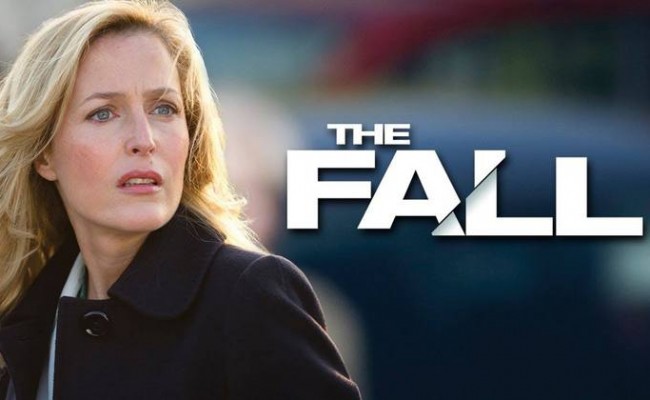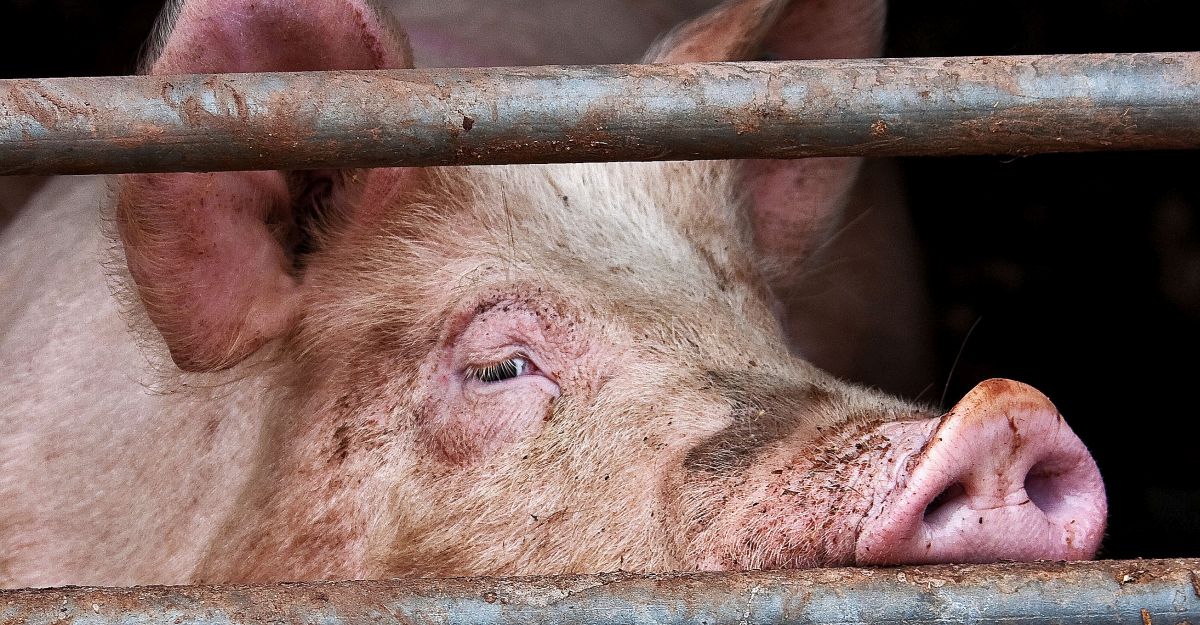A killer has been murdering young women, and a female detective is on the case.
She’s fiercely intelligent, emotionally distant and combative, perfectly willing to be disliked by her male colleagues to get the job done. Sound familiar?
In recent years, the Manic Pixie Dream Girl of every other romantic comedy has been displaced as pop culture’s dominant female fantasy figure by another type: the she-sleuth with people problems. The character differs in degrees; in The Killing, say, or Zero Dark Thirty, she’s obsessive, unable to maintain much semblance of a life outside work, while in The Bridge, or Homeland, our hero is certifiably on the spectrum, and there’s a dubious implication that her condition – exhausting as it may be for her colleagues – gives her insights others aren’t privy to. She’s antisocial, or unstable, or both, but brilliant too.
The latest iteration of this kind of clinician is Stella Gibson (Gillian Anderson), brought to Belfast to solve the murder of a young woman. She’s the star and central attraction of the latest heavyweight TV import to hit our shores: The Fall.
Stella ticks all the familiar boxes. She’s dogged, haughty and beautiful, and runs rings around the blokes. But as the five one-hour episodes of the first season play out, it becomes clear that the character of Gibson, as well as the show itself, is not so much a rehashing of hugely popular tropes as a reaction to them. Allan Cubitt, the show’s creator (and whose form, since his start on Prime Suspect, is unimpeachable) is trying to reinvent the wheel from the inside out.
One of the ways he goes about it is by treating the procedural as a petri dish for ideas about sexual politics. There’s a running reference to the Mosuo people, a matrilineal, matriarchal society on the China-Tibet border. We’re also treated to a thoroughgoing turning over of gender assumptions, double standards and prejudices within the workplace. Stella takes a junior officer home and sleeps with him, and it’s clearly transactional. When questioned about it later by a superior, she upbraids him: ‘Man fucks woman. Man, subject, woman, object. Woman fucks man. Woman, subject, man, object – that’s not so comfortable for you is it?’
It’s a testament to Anderson that she can make a mouthful like that work.
The series is particularly persuasive in its unpicking of how the press cover violence against women. In one scene, Stella, her boss, and a media officer go through a statement to the press. ‘Let’s not call them innocent,’ says Gibson.
‘They were innocent,’ her boss replies.
‘What if he kills a prostitute next?’ says Gibson, “or a woman walking home drunk, late at night, in a short skirt? Will they be somehow less innocent, therefore less deserving, culpable?’
Saddled with all this, Stella could be a complete cipher, a repository of inspirational monologues and indignant philippics, an Aaron Sorkin character lobbed into Belfast, but Anderson makes her wonderfully human. Shorn of backstory, she emerges as a woman whose steely demeanour doesn’t exclude a genuine compassion, as well as flashes of dry humour totally absent in her recent fictional counterparts. At one point Gibson tells her offsider that ‘my first degree was in anthropology’.
‘Your first degree?’ says the subaltern.
‘Mm,’ says Stella, ‘I have hundreds.’
Not one for the ages, you might say, but still.
Stella might be steely, but she’s real too, and her competency isn’t offset (as it so often is in these shows) by cuddly eccentricities. It’s a measure of what we’ve come to expect from this type of character that the New York Times could complain, of Gibson, that she brings no ‘endearing tics to the search for the killer’.
As refreshingly tic-free as Gibson is, though, The Fall’s starkest innovation is Cubitt’s decision to tell us who the killer is straight away, and to devote as much screen time to him as to Gibson and the plods on his tail. Far from leaching the story of suspense, it lends a queasy fascination to even the most everyday actions. How can somebody cut up a banana into his daughter’s breakfast bowl only hours after breaking into a woman’s house and strangling her? Paul Spector (Jamie Dornan) is a bereavement councillor (a ghoulish touch of gallows humour, that) with two small kids and a wife who works in the neonatal unit of a local hospital. He’s young, fit, and handsome. His wife thinks he’s working the night shift, when in fact he’s casing the houses of future victims. We see him do his warm up exercises, then break into women’s homes, strangle them and bathe them. Sometimes he paints their nails. Then he puts them back in bed and takes photos of them, which he masturbates to later.
At one point, the father of one of Spector’s victims, Sarah Kay, tells Gibson ‘evil people are people of the lie. They lie to themselves and they lie to others.’ And watching a world-class liar lie to everyone in his life is, more than its exploration of gender, what makes The Fall so arresting. It’s like Crime and Punishment without the namby-pamby self-recrimination. Jamie Dornan, who has just been cast as the lead in Fifty Shades of Gray, plays Spector with a flouncing, adolescent sullenness. In one scene, summoned to a shellacking in his supervisor’s office, he slides down the bannister, like a truant on his way to the headmaster. He’s also a literary fellow, fond of TS Eliot and Nietzsche. But unlike the Sundance Channel’s Rectify and its ticking off of Flannery O’Connor and Plato, among others, The Fall’s literary (and biblical) references don’t seem to strain unnecessarily for significance by association. Typically, it’s the killers in both these shows (though the guilt of one of them is uncertain) who have the poetic bent.
By the end of episode five, Cubitt lets the blandly schematic creep in. There’s the climactic phone call between Gibson and Spector, where the requisite connection hinted at between the hunter and the prey is made explicit. Spector turns into a panto villain: he actually says ‘Stella, at long last’, then drones on about how they’re alike (‘obsessive, ruthless, living and breathing moral relativism. It’s just you’re bound by conventional notions of what’s right and wrong and I’m free’) and she tells him ‘it’s never over for someone like you. It’s not over until I catch you’. Spector’s creaky philosophy is pure cliché, as is the lazy idea that Gibson and Spector are two sides of the same coin.
Still, it seems churlish to quibble. For most of its five hours The Fall is distinguished by its details, and how memorably, truthfully odd they are. We see Spector giving his daughter a necklace stolen from his victim; the girl cherishes it. When the sister of Sarah Kay discovers the body of her sister and calls 999, Cubitt plays the conversation on the face of the young emergency operator, not the sister. Having gently navigated the sister’s hysteria, the operator plugs into the next caller, and it’s haunting in its matter-of-fact-ness. Back in her office, Gibson is interviewed by another officer about her sexual involvement with a murdered detective. When she bends over her desk to highlight the phone calls made to her number, her colleague steals a glance at her bum. It’s all played in a wide shot, and almost imperceptible.
The Fall ends on a cliffhanger, and season two is on its way. Some of the reaction to the season’s conclusion, predictably, was indignant, and similar to that which greeted the end of The Killing’s first season in America. Homicide investigations can span an entire season these days, but fail to wrap them up at season’s end and batten down the hatches. Which is odd, given that we will happily wait five seasons or more for investigations into drug manufacturing syndicates to play out. There’s clearly something more repulsive about the serial killer (unless, like Dexter, he kills other serial killers) and the length in which we can watch him before he gets his comeuppance commensurately shorter. Cubitt’s modus operandi thus far has been thoroughly subversive, and it’ll be interesting to see if he’ll even deliver a reckoning. Perhaps the audience itself will realise they don’t want to say goodbye to Spector, after all. The Fall has found itself with the Tennessee Williams/Brando problem: how do you critique misogyny when our attention slackens every time its embodiment is off-screen?






